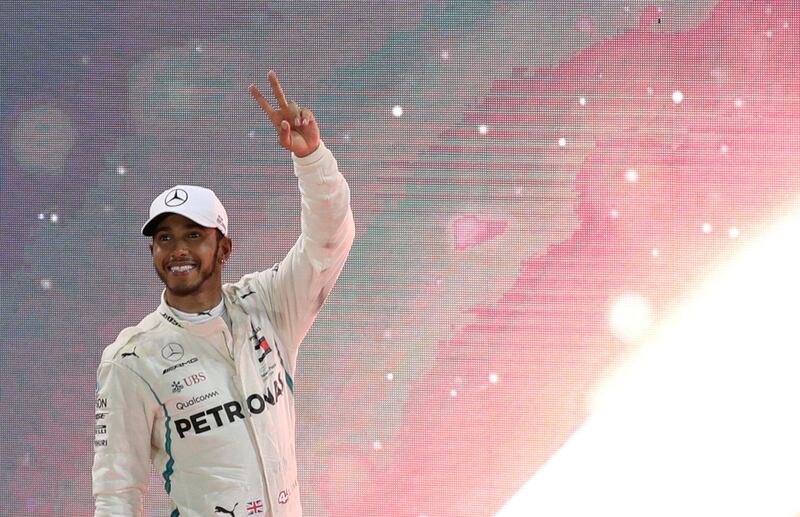If you think the 2018 Formula One season ended last Sunday, when Lewis Hamilton won the final Grand Prix of the year in Abu Dhabi, you might be a fan of the sport, but you're certainly not an F1 driver. Starting this week and until at least mid-December, they will be busy at work with their teams, fine-tuning the car they will be driving next season.
During the post-race press conference in Abu Dhabi, all three drivers who made it to the podium, Lewis Hamilton, Sebastian Vettel and Max Verstappen were asked what they will be doing during the 112 days that separate them from the first Grand Prix of the 2019 season, which will start on March 17 in Australia.
All of them mentioned the practice sessions they undertake during the next couple of weeks, but it was also clear that what they were looking forward to was taking a break.
“Excited for the winter… and just getting time to spend with my sister and the kids and my mum and my dad,” said five-time world champion Lewis Hamilton. “The seasons are getting longer and longer, so… that period is getting more and more important.”
A recent study of executives conducted with Hintsa Performance – a company whose science board I joined a few years ago − reveals that well-managed break and recovery time can significantly reduce burnout. We found switching off from work to be particularly important for high performers, resulting in improvements in both mood and cognitive ability.
However, while it is vital that we all take time to stop and rest, that does not mean doing nothing. Taking time to recover and prepare for new challenges is not an effortless process. It requires us to take a number of specific steps to create the optimum conditions for recovery.
Successful time off requires the ability to detach oneself from work. This is easier said than done for many of us. Changing social environments is a good start. During the post-race press conference, Verstappen mentioned how much he was looking forward to spending time with his friends. That’s something we can all relate to.
Changing one’s geographical environment is also beneficial. The cognitive benefits of enjoying nature, especially green spaces, have been extensively documented. But switching off is not just a metaphor, in this case. A study published this summer by researchers from the University of Illinois and the University of Hong Kong showed that the gains in cognitive performances made as a result of time spent surrounded by greenery are negated if subjects used an electronic device at the same time.
Being the master of your own time and schedule is another crucial factor. Time off should allow us to rediscover hobbies that absorb us or activities that mark a total departure from our working lives. Vettel, for instance, said that he was going to “do stuff that you don’t usually have much time for. Some DIY… some fixing at home.”
Well-managed time off is important to people in all walks of life. Take the world of entertainment, for instance. Last week, the 30-year-old Canadian YouTube star Lilly Singh announced that she was taking a break from producing and posting several online videos a day to preserve her mental health.
Avicii: True Stories, a documentary about the superstar DJ who died earlier this year, explained how he had been on the road for eight years, playing hundreds of shows around the world: "After four years, when I started to come home, it didn't even feel like home any more," he said shortly before his death.
In recent interviews, the French electronic music star David Guetta has said that Avicii, a friend and artistic collaborator, did not know how to say "no" to work. He added Avicii's death was a wake-up call and that he has since made a point of scheduling plenty of time at home and with friends and family.
The lesson we can learn from this is that – whether you're a world-beating racing driver, a captain of industry, or simply trying to manage the demands of career and family – kicking back and recharging your batteries might seem like an indulgence, but it is often the best investment of your time.
Professor Olivier Oullier is the president of Emotiv, a neuroscientist and a DJ






